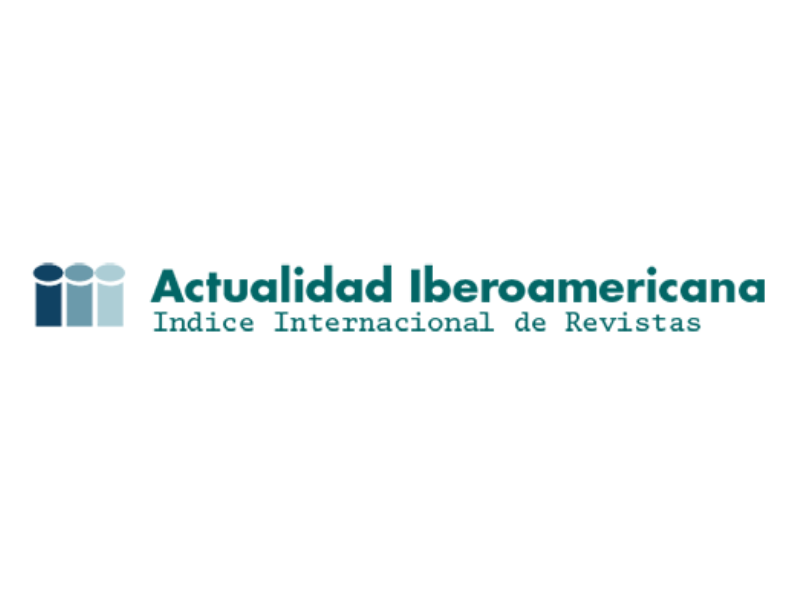Effects of corn oil on the volatile fatty acids in horses with induced gastric ulcers
Efecto del aceite de maíz sobre los ácidos grasos volátiles en caballos con úlceras gástricas inducidas
Show authors biography
ABSTRACT
Objetive. To determine the influence of corn oil on the volatile fatty acids (VFA) concentrations in the gastric juice in horses with phenylbutazone (PBZ) induced gastric ulcers and Correlate the gastroscopic findings with the VFA concentrations. Materials and methods. 15 horses were allotted in 3 groups. Group I (control) received placebo during first 6 days (induction period) and was treated with sucralfate for 2 weeks (treatment period). Groups II and III received PBZ during the induction phase. After 6 days, horses from group II received 70 mL of corn oil /100 kg of body weight/ po, twice a day, for 2 weeks and horses from group III received 90 mL of corn oil/100 kg of body weight/ po, twice a day, for 2 weeks. All horses were examined by gastroscopy at days 0, 7 and 21. The lesions were recorded and classified according to the number and severity. Samples from gastric fluid were taken to measure the concentrations of the acetic, propionic, butyric and lactic acids. Results. Both PBZ protocols produced lesions in the both non-glandular and glandular areas of the stomach. All the treatments produced healing of the injured mucosa glandular. Neither of the two corn oil treatments affected healing of the gastric ulcers located in the non-glandular area. Conclusions. The concentrations of acetic and butyric acids were highest in the gastric juice. The corn oil and sucralfate did not lead to differences in the concentration of acetic acid and butyric acid.
Article visits 2084 | PDF visits
Downloads
- Hepburn R. Equine practice: Gastric ulceration in horses. In Practice 2011; 33(3):116-24. https://doi.org/10.1136/inp.d1195
- Videla R, Andrews FM. New perspectives in equine gastric ulcer syndrome. Vet Clin North Am Equine Pract 2009; 25(2):283-301. https://doi.org/10.1016/j.cveq.2009.04.013
- Malmkvist J, Poulsen JM, Luthersson N, Palme R, Christensen JW, Søndergaard E. Behaviour and stress responses in horses with gastric ulceration. Appl Anim Behav Sci 2012; 142(3-4):160-7.
- https://doi.org/10.1016/j.applanim.2012.10.002
- Husted L, Sanchez LC, Olsen SN, Baptiste KE, Merritt AM. Effect of paddock vs. stall housing on 24 hour gastric pH within the proximal and ventral equine stomach. Equine Vet J 2008; 40(4):337-41. https://doi.org/10.2746/042516408X284673
- Nadeau JA, Andrews FM, Patton CS, Argenzio RA, Mathew AG, Saxton AM. Effects of hydrochloric, acetic, butyric, and propionic acids on pathogenesis of ulcers in the nonglandular portion of the stomach of horses. Am J Vet Res 2003; 64(4):404-12.
- https://doi.org/10.2460/ajvr.2003.64.404 https://doi.org/10.2460/ajvr.2003.64.413
- Nadeau JA, Andrews FM, Patton CS, Argenzio RA, Mathew AG, Saxton AM. Effects of hydrochloric, valeric and other volatile fatty acids on pathogenesis of ulcers in the nonglandular portion of the stomach of horses. Am J Vet Res 2003; 64(4):413-7.
- https://doi.org/10.2460/ajvr.2003.64.413
- https://doi.org/10.2460/ajvr.2003.64.404
- Nadeau JA, Andrews FM, Mathew AG, Argenzio RA, Blackford JT, Sohtell M, et al. Evaluation of diet as a cause of gastric ulcers in horses. Am J Vet Res 2000; 61(7):784-90. https://doi.org/10.2460/ajvr.2000.61.784
- Soma LR, Uboh CE, Maylin GM. The use of phenylbutazone in the horse. J Vet Pharmacol Ther 2011; 35:1-12. https://doi.org/10.1111/j.1365-2885.2011.01299.x
- Cook LV, Blikslager AT. The use of nonsteroidal anti-inflammatory drugs in critically ill horses. J Vet Emerg Crit Care 2015; 25(1):76-88. https://doi.org/10.1111/vec.12271
- Cargile JL, Burrow JA, Kim I, Cohen ND, Merritt AM. Effect of dietary corn oil supplementation on equine gastric fluid acid, sodium, and prostaglandin E2 content before and during pentagastrin infusion. J Vet Intern Med 2005; 18(4):545-9.
- https://doi.org/10.1111/j.1939-1676.2004.tb02583.x
- https://doi.org/10.1892/08916640(2004)18<545:EODCOS>2.0.CO;2
- Odabasoglu F, Halici Z, Cakir A, Halici M, Aygun H, Suleyman H, et al. Beneficial effects of vegetable oils (corn, olive and sunflower oils) and α-tocopherol on anti-inflammatory and gastrointestinal profiles of indomethacin in rats. Eur J Pharmacol 2008; 591(1–3):300-6. https://doi.org/10.1016/j.ejphar.2008.06.075
- Martinez Aranzales JR, Candido de Andrade BS, Silveira Alves GE. Orally administered phenylbutazone causes oxidative stress in the equine gastric mucosa. J Vet Parmacol Therap 2014; 38(3):257-264. https://doi.org/10.1111/jvp.12168
- Frank N, Andrews FM, Elliott SB, Lew J. Effects of dietary oils on the development of gastric ulcers in mares. Am J Vet Res 2005; 66(11):2006-11. https://doi.org/10.2460/ajvr.2005.66.2006
- McAllister CG, Andrews FM, Deegan E, Ruoff W, Olovson SG. A scoring system for gastric ulcers in the horse. Equine Vet J 1997; 29(6):430-3. https://doi.org/10.1111/j.2042-3306.1997.tb03154.x
- Luthersson N, Nielsen KH, Harris P, Parkin TDH. Risk factors associated with equine gastric ulceration syndrome (EGUS) in 201 horses in Denmark. Equine Vet J 2009; 41(7):625-30.
- https://doi.org/10.2746/042516409X441929
- https://doi.org/10.2746/042516409X441910
- Murray MJ, Grodinsky C, Anderson CW, Radue PF, Schmidt GR. Gastric ulcers in horses: a comparison of endoscopic findings in horses with and without clinical signs. Equine Vet J Suppl 1989; 7:68-72. https://doi.org/10.1111/j.2042-3306.1989.tb05659.x
- Le Jeune SS, Nieto JE, Dechant JE, Snyder JR. Prevalence of gastric ulcers in Thoroughbred broodmares in pasture: A preliminary report. Vet J 2009; 181(3):251-5. https://doi.org/10.1016/j.tvjl.2008.03.020
- Varloud M, Fonty G, Roussel A, Guyonvarch A, Julliand V. Postprandial kinetics of some biotic and abiotic characteristics of the gastric ecosystem of horses fed a pelleted concentrate meal. J Anim Sci 2007; 85(10):2508-16. https://doi.org/10.2527/jas.2006-182
- Al Jassim RAM, Andrews FM. The bacterial community of the horse gastrointestinal tract and its relation to fermentative acidosis, laminitis, colic, and stomach ulcers. Vet Clin North Am Equine Pract 2009; 25(2):199-215. https://doi.org/10.1016/j.cveq.2009.04.005
- McConnico RS, Morgan TW, Williams CC, Hubert JD, Moore RM. Pathophysiologic effects of phenylbutazone on the right dorsal colon in horses. Am J Vet Res 2008; 69(11):1496-505.
- https://doi.org/10.2460/ajvr.69.11.1496
- Andrews FM, Buchanan BR, Elliott SB, Al Jassim RAM, McGowan CM, Saxton AM. In vitro effects of hydrochloric and lactic acids on bioelectric properties of equine gastric squamous mucosa. Equine Vet J 2008; 40(4):301-5. https://doi.org/10.2746/042516408X293565























